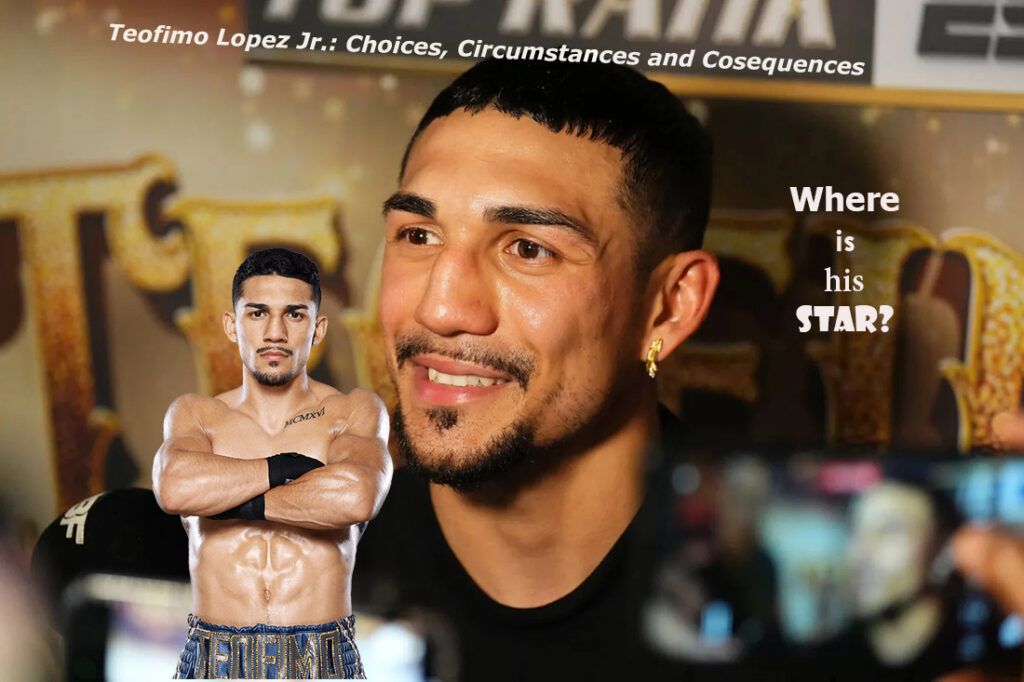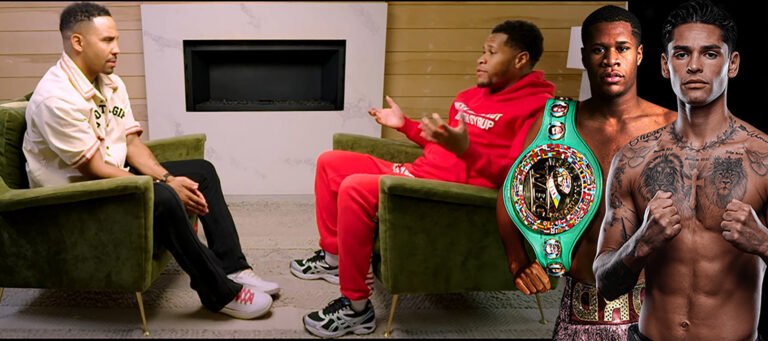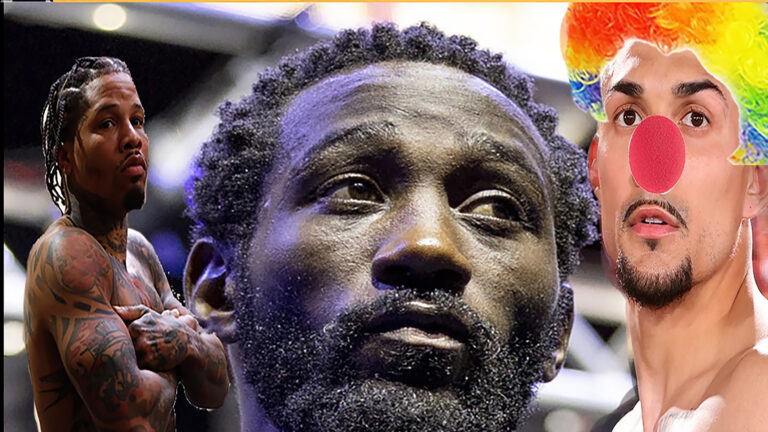
Teofimo Lopez Jr.: A Star Derailed by Choices and Circumstance
Article By: John Green
Teofimo Lopez Jr. once stood as the future of boxing, emerging from the amateurs with a perfect blend of speed, power, and confidence. Nicknamed “Gordo” in his early years, Lopez was an athletic prodigy, flashing one-punch knockout power that left fans buzzing about his potential. As he climbed the ranks in the stacked 135-pound division, his explosive performances earned him a reputation as one of the most feared contenders. Despite sharing an era with big names like Gervonta “Tank” Davis, Devin Haney, and Ryan Garcia, Lopez carved his path by taking on other dangerous challengers.
Lopez’s crowning achievement came in 2020 when he dethroned the pound-for-pound great Vasiliy Lomachenko. Heading into the bout, Lopez was already the IBF lightweight champion, having brutally knocked out Richard Commey in two rounds. The win over Lomachenko, a fight that unified the WBA, WBO, IBF, and the controversial WBC Franchise title, was meant to be Lopez’s statement that he was the undisputed lightweight king.
But controversy clouded the victory. While Lopez had taken the Franchise title from Lomachenko, the WBC had already handed its “Super” belt to Devin Haney after Lomachenko petitioned for the Franchise status, effectively avoiding a mandatory fight with Haney. The WBC Franchise belt was not originally meant to be transferable, and with Lopez’s win, confusion erupted. Lopez’s claim to undisputed status was dismissed by many fans and experts alike, as the Franchise title lacked legitimacy. It led to the term “Ran-chise” being coined by fans, implying Lopez had run from Haney rather than facing him to settle the dispute over who truly reigned supreme at lightweight.
Rather than pursuing a fight with Haney to solidify his legacy, Lopez’s career took a series of unexpected and often baffling turns. First, he chose not to give Lomachenko a rematch despite their close bout. Then came managerial turmoil with Triller, a failed deal that kept Lopez inactive for nearly a year, costing him the momentum he had built after his breakout win over Lomachenko.
Lopez’s decision to fight the relatively unknown George Kambosos Jr. instead of a high-profile opponent proved disastrous. In a shocking upset, Kambosos dropped Lopez early in the fight and went on to win a split decision, stripping Lopez of his belts and leaving his career at a crossroads. Fans had little sympathy, with many arguing that Lopez’s refusal to face Haney had come back to haunt him.
After the Kambosos loss, Lopez moved up to the 140-pound division, where he captured the WBO title. However, his performances lacked the spark of his earlier fights. He secured a knockout win over Pedro Campa, but his most significant victory came against an aging Josh Taylor, a once-great champion who appeared past his prime. Even with that win, Lopez’s narrative was overshadowed by claims from his camp that he was now a two-time undisputed champion—a false assertion that drew heavy criticism from boxing purists.
Lopez’s refusal to face the likes of Haney, Subriel Matias, and Regis Prograis has further fueled accusations of ducking. Instead, Lopez has focused on calling out Terence Crawford, a pound-for-pound great who competes two weight classes above him. A confrontation between Lopez and Crawford at a UFC event only added fuel to the fire, with Crawford making it clear that Lopez’s posturing was not being taken seriously.
Now, Lopez finds himself at a critical juncture in his career. With many tough fights available at 140 pounds, including a potential clash with rising star Brian Norman Jr., Lopez’s decision to turn down these opportunities has left fans frustrated. His critics argue that he has consistently failed to prove his greatness, opting instead for easier paths and delusional claims about his legacy.
Supporters of Lopez believe that he is a fighter who rises to the level of his competition, but the reality is that his inconsistent performances have hurt his stock. At a time when he should be clearing out his division or moving up to secure his place in boxing history, Lopez appears to be adrift, unsure of his next move.
Ultimately, Lopez’s downfall can be attributed to a mix of bad decisions, managerial missteps, and the ill-fated introduction of the WBC Franchise belt, a title that has muddled the concept of true championship legitimacy. Lomachenko, Bob Arum, and Mauricio Sulaiman all played a part in Lopez’s narrative, but it is Lopez himself who now must face the consequences of his choices.
Meanwhile, Devin Haney, the man Lopez once dismissed, has solidified his status by winning the undisputed championship after twice defeating George Kambosos. Haney then discarded the Franchise belt, much to the approval of fans who never considered it a legitimate title in the first place.
Teofimo Lopez Jr. should have been a megastar by now. The talent is still there, but the question remains: can “The Takeover” reclaim his momentum and live up to the potential that once had the boxing world at his feet? Only time will tell.



